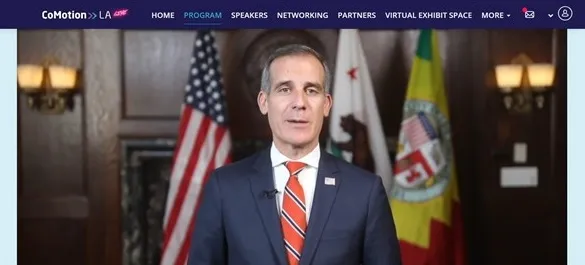
Los Angeles mayor Eric Garcetti called his city the "transportation technology capital of the world" in opening remarks at this week's three-day CoMotion LA digital event.
“The focus in this unprecedented moment is on moving essential workers to their jobs, delivering essential services to people who are homebound by a pandemic, and creating slow streets in our neighbourhoods," he said.
"There’s no question, now more than ever, we need to innovate our transportation system, nationally, globally and locally. We need to double down on our commitment to not only recover from this pandemic but not to return to what was before – reimagine, instead, our future."
He emphasised that that meant "addressing the current cascade of crises and the ever-present threat of climate change together".
Garcetti highlighted the future mobillity work of Urban Movement Labs, saying that it is could "knit together the fabric of our transportation system as a low-noise, all-electric, accessible and affordable option for getting around".
This work would be part of his “broader vision for a safe, sustainable, multimodal transportation system in Los Angeles: transportation that puts equity front and centre, and is accessible to everyone".
The event, which features a variety of presentations and discussion sessions, runs until 19 November.









